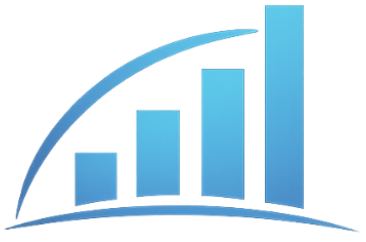In today’s fast-paced professional landscape, the importance of continual learning and adaptive skills has become a trending topic in professional growth. As industries evolve and technology advances, the need for professionals to adapt has never been more critical. The landscape is marked by constant change, and embracing this reality is essential for career longevity.
Lifelong learning is increasingly recognized as a foundational pillar of career success. It is no longer sufficient to acquire knowledge solely during formal schooling; the need for continuous education has become evident. Individuals must embrace the mindset that educational growth does not end with formal schooling. This perspective encourages professionals to seek knowledge consistently throughout their careers, thus remaining relevant and competitive in their fields.
With the rise of digital platforms, accessing learning resources is more convenient than ever. Professionals now enjoy a wealth of online resources that cater to their learning needs. Online courses, webinars, and podcasts offer valuable insights into emerging trends and skills needed in various industries. Options are abundant, allowing for varied learning styles and preferences to be accommodated.
Professionals no longer need to rely solely on traditional education systems to develop their skills. The democratization of knowledge through the internet has empowered individuals to take charge of their educational journeys. This access makes it easier for anyone to pursue interests or specialties that align with their career goals.
Networking has transformed as well, becoming an essential aspect of professional growth. It is not just about attending events; it encompasses building genuine connections within the industry. Online communities, professional organizations, and social media platforms provide opportunities to connect with industry leaders and peers. Engaging meaningfully with others in the field can pave the way for new and exciting opportunities.
Building a robust professional network can lead to mentorship opportunities and new career pathways. The relationships developed within these networks can become invaluable as individuals navigate career challenges. Through networking, professionals can share knowledge, resources, and even job leads, which enriches their learning experience and fosters growth.
Mentorship plays a vital role in personal and professional development. Engaging with mentors allows individuals to gain insights from experienced professionals in their fields. A mentor can offer guidance, share valuable experiences, and provide constructive feedback that can shape a mentee’s career trajectory. This relationship often allows for tailored advice that may not be easily accessible through other means.
Furthermore, mentoring relationships can also be reciprocal, fostering an environment of shared learning and growth. Professionals at all levels benefit from mentorship, as it enhances not just individual capabilities but also enhances organizational strengths. The insights gained through mentorship can be crucial in navigating complexities in one’s career path, influencing decisions and strategies.
Additionally, soft skills are increasingly recognized as integral to professional success. These skills complement technical expertise and can significantly enhance job performance. While technical skills are essential, abilities such as communication, collaboration, and emotional intelligence are vital in today’s workplace. Professionals who excel in soft skills often find themselves in leadership roles, appreciated for their interpersonal dynamics.
The concept of a “growth mindset” is also essential for professional growth. According to psychologist Carol Dweck, individuals with a growth mindset believe their abilities can be developed through hard work and dedication. This mindset fosters resilience and encourages individuals to embrace challenges as opportunities for growth. It signifies readiness to take risks and learn from failure.
Viewpoints shaped by a growth mindset equip professionals to thrive under pressure. When obstacles arise, those with a growth mindset are more inclined to innovate and find solutions. They view challenges not as threats but as opportunities to improve and enhance their skills, which ultimately fosters career longevity.
As the workforce becomes more diverse, professionals should also embrace cultural competency as part of their growth journey. Understanding and respecting different cultures fosters inclusive workplaces that drive innovation. Professionals who are culturally competent can navigate diverse environments and contribute meaningfully to team dynamics. This ability allows for greater collaboration and creativity within teams.
Setting specific, measurable, achievable, relevant, and time-bound (SMART) goals is another critical component of professional growth. These well-defined objectives provide clear direction and motivation for individuals. Professionals who set goals are more likely to be proactive about their development and track their progress effectively.
Moreover, feedback is essential for professional development. Regularly seeking and receiving feedback from colleagues and supervisors can help individuals identify areas for improvement. Constructive criticism acts as a roadmap for refining skills and enhancing overall performance. Engaging in this process requires humility and a commitment to growth.
Another emerging trend is the focus on mental well-being in the professional sphere. A healthy work-life balance contributes significantly to overall job satisfaction and productivity. Prioritizing mental health allows professionals to maintain motivation and engagement in their work, ultimately leading to significant career achievements. When individuals are mentally balanced, they are more focused, innovative, and effective in their roles.
Technology has also dramatically transformed professional development opportunities. Artificial intelligence, machine learning, and data analytics are now integral to many industries. Professionals must learn to harness these technologies to remain competitive and enhance their efficiency. Understanding these tools can elevate an individual’s value within their organization and contribute greatly to overall success.
The importance of adaptability cannot be overstated in today’s work environment. The ability to pivot and adjust to new circumstances is essential for long-term career success. Professionals who can adapt to changes in technology or market conditions position themselves as invaluable assets within their organizations. This adaptability often defines successful career trajectories.
Furthermore, developing a personal brand is becoming increasingly relevant in a competitive job market. A strong personal brand differentiates professionals and enables them to communicate their unique strengths effectively. By defining their abilities and values, individuals can attract opportunities that align with their career aspirations. Strong personal branding helps to establish credibility and fosters a clear professional identity.
Professional growth also involves self-reflection, a crucial process for development. Taking the time to assess personal strengths and weaknesses allows individuals to chart their development paths meaningfully. Self-reflection promotes awareness and helps professionals identify the skills that need cultivation for future success. It’s a foundational practice that can enhance strategic decision-making in one’s career.
Moreover, collaboration thrives as a vital theme in professional growth. Working within diverse teams fosters creativity and encourages the exchange of ideas that can lead to innovative solutions. Collaborative environments not only enhance problem-solving capabilities but also improve overall productivity and morale. Engaging with colleagues from diverse backgrounds enriches the professional experience for everyone involved.
As remote work becomes more prevalent, developing skills for effective virtual communication is crucial. Professionals must learn to engage their teams through digital channels and ensure that communication remains clear and motivational. Navigating remote work dynamics requires adapting communication styles and tools to maintain team cohesion, regardless of physical location.
Continuous professional development can also be supported by pursuing advanced certifications in specialized areas. Specializing in a particular industry or field can open up doors to new job opportunities and advancement potential. Pursuing further education or training showcases a commitment to one’s career and a desire to excel in a chosen field of expertise.
Engaging in industry conferences and workshops is another valuable avenue for professional growth. These events provide opportunities to learn about recent developments and network with fellow professionals. Engaging in discussions and sharing knowledge enhances personal credibility and expertise in one’s field. Attending such events also fosters a sense of community among professionals.
Additionally, gaining the ability to successfully navigate career transitions is becoming increasingly relevant. Individuals often change industries or pivot within their careers, necessitating adaptability and new skill acquisition. Understanding how to approach these transitions effectively can help maintain momentum and open new pathways for advancement.
Developing a strong work ethic remains a cornerstone of professional success as well. Demonstrating reliability, dedication, and a positive attitude is often recognized and appreciated by employers. A solid work ethic builds a positive reputation and can lead to increased responsibilities and opportunities within an organization.
Maximizing productivity hacks can significantly influence professional growth. Techniques like time blocking, the Pomodoro Technique, and prioritizing tasks can enhance efficiency and focus. When individuals manage their time effectively, they can dedicate more attention to strategic growth endeavors, leading to higher levels of job satisfaction.
Understanding the power of emotional intelligence is also paramount for professionals. Those who recognize their emotions and can empathize with others significantly improve workplace relationships. Elevated emotional intelligence fosters better teamwork, boosts morale, and leads to increased job satisfaction across teams.
Investing in personal development books and resources becomes another strategy for stimulating growth. Many established authors and thought leaders share insights that empower professionals to overcome obstacles. Reading widely and applying new knowledge can lead to fresh perspectives and innovative thinking in one’s career.
Moreover, the impact of personal health on professional growth should not be underestimated. Regular exercise, a balanced diet, and adequate sleep contribute to heightened performance capabilities. Healthy individuals are often more energetic, focused, and productive in their work environments, positively affecting their contributions.
Lastly, recognizing the role of resilience in professional growth is essential in today’s world. The ability to bounce back from setbacks and learn from failures breaks down barriers to success. Resilient professionals inspire those around them, fostering a culture of perseverance and dedication within their organizations.
Embracing feedback, pursuing lifelong learning, and cultivating both hard and soft skills are vital for successfully navigating today’s dynamic job market. When professionals focus on these aspects in their careers, they can achieve steady and meaningful growth over time. Through strategic efforts and dedication, the journey of professional growth can lead to fulfilling and successful careers.

